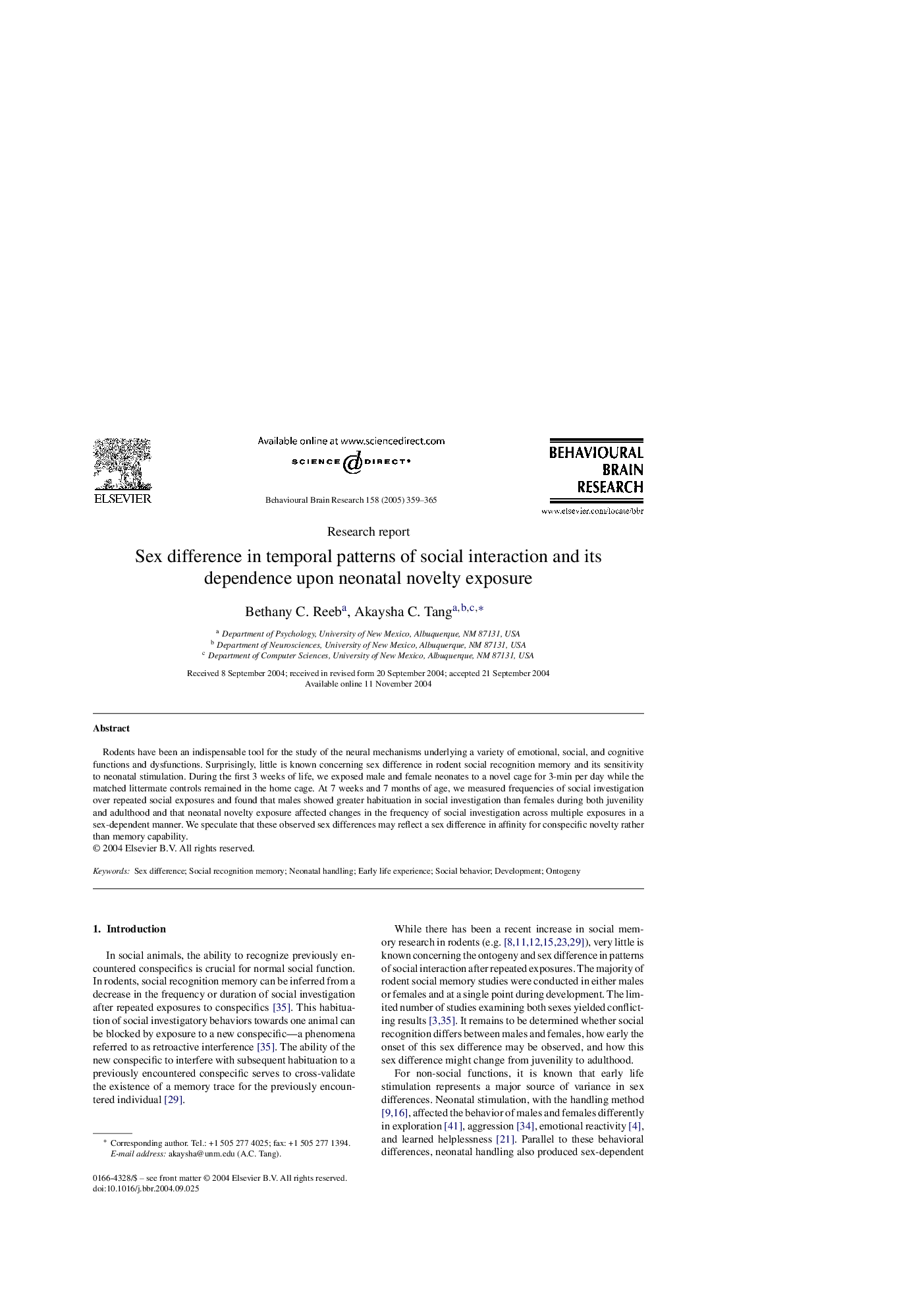| Article ID | Journal | Published Year | Pages | File Type |
|---|---|---|---|---|
| 9406802 | Behavioural Brain Research | 2005 | 7 Pages |
Abstract
Rodents have been an indispensable tool for the study of the neural mechanisms underlying a variety of emotional, social, and cognitive functions and dysfunctions. Surprisingly, little is known concerning sex difference in rodent social recognition memory and its sensitivity to neonatal stimulation. During the first 3 weeks of life, we exposed male and female neonates to a novel cage for 3-min per day while the matched littermate controls remained in the home cage. At 7 weeks and 7 months of age, we measured frequencies of social investigation over repeated social exposures and found that males showed greater habituation in social investigation than females during both juvenility and adulthood and that neonatal novelty exposure affected changes in the frequency of social investigation across multiple exposures in a sex-dependent manner. We speculate that these observed sex differences may reflect a sex difference in affinity for conspecific novelty rather than memory capability.
Keywords
Related Topics
Life Sciences
Neuroscience
Behavioral Neuroscience
Authors
Bethany C. Reeb, Akaysha C. Tang,
